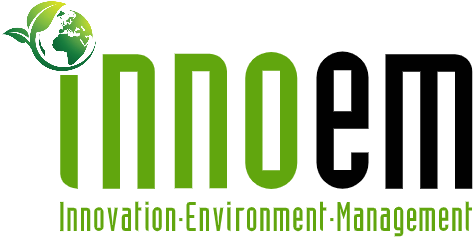The new year reminds us that there is no time to lose to halve emissions by 2030. Here is what the SBTi is doing to drive this goal in 2022.
The global economy must halve emissions by 2030 – that’s now just eight years away. The new year reminds us that there is no time to lose. In 2022, we must all resolve to rapidly build on the momentum gained from previous years and face our challenges with determination.
At the Science Based Targets initiative (SBTi), we have a detailed action plan for 2022 that will continue to drive exponential growth in robust science-based targets. Our focus is on scaling adoption of science-based targets by companies and financial institutions in key sectors and geographies; and, importantly, holding these organizations accountable for delivering on their targets.
Read on to learn more about our plans this year.
Sector-Specific Developments
As part of our plan to exponentially grow the number of companies taking bold climate action toward a 1.5°C future, the SBTi is developing a range of sector-specific guidance and resources:
Forest, Land and Agriculture (FLAG) Consultation
On January 18th, a public consultation for stakeholders to provide feedback on our draft FLAG sector guidance and target setting tool begins. These resources will give companies within the food, agriculture and forest sectors robust methods, tools and guidance to set science-based targets that include land-related emissions and removals. The guidance, including target validation criteria, sector-specific target setting methods and a target-setting tool, will be launched in March.
Aviation and Maritime sector guidance
In February, the SBTi will launch science-based target setting methods, tools and guidance for shipping and aviation companies. These resources enable companies to respond to the growing regulatory, investor and consumer pressures and take action to create future resilience in the transformation to a net-zero economy.
Financial institutions
With a crucial role in the global transformation to net-zero, last year saw the validation of the first nine science-based targets from financial institutions with our new framework. We will be continuing to develop our resources for the finance sector, with the launch of our Net-Zero Foundation Paper for FIs expected in March. This paper is the first step in developing a Net-Zero Standard for Financial Institutions which we plan to launch ahead of COP27. We will begin validating targets using the standard in early 2023. The SBTi is also working to expand the target setting framework for financial institutions to include additional asset classes and activities. New target setting methods and guidance for Securities Underwriting and Sovereign Debt are planned forthcoming in Q2 of the calendar year.
Cement sector guidance
The cement sector plays a vital role in the transformation to a net-zero economy. This is why the SBTi is developing a sector-specific pathway and target setting method for this industry to take climate action to the next level. In mid-March, we will open a month-long public consultation period for key stakeholders and experts in the cement sector to provide feedback on the SBTi cement guidance and target setting tool.
Steel sector guidance
Sector-specific guidance is crucial to helping primary and secondary manufacturers understand and set science-based targets within the unique sector context and help galvanize the transformation to a net-zero economy. Later this year, we will undertake a public consultation process for experts in the steel industry to provide input and ensure the criteria, guidance and target setting tools are robust, clear and practical. This will give steel companies clarity and confidence that their decarbonization plans are aligned with climate science.
Buildings sector project
Buildings’ operational and embodied emissions already account for over a third of today’s global CO2 emissions, and this is only set to increase. That’s why, in Q1 of the calendar year, we are launching the Buildings sector project to develop resources to guide the adoption of short- and long-term GHG emission reduction targets for this sector.
Chemical sector project
In early 2022, the SBTi will launch the next phase of our work to develop guidance and tools for the chemicals industry and various sub-sectors. We expect to publish initial guidance in late 2022, with final publications in 2023.
Measurement, Reporting and Verification (MRV) Framework and Protocol
We will be launching a MRV Framework in Q4 2022 to provide a standardized and robust mechanism to track organizations’ progress against science-based targets. We will be appointing an expert advisory group with a diverse range of relevant specialists from science, business, academia and finance to support us with input at each stage of development.
Country Activation Project
The number of organizations with science-based targets has grown exponentially in recent years, particularly in Europe, the United States and Japan. However, there is still a significant regional gap, with fewer companies from developing regions such as Africa, Latin America and Southeast Asia. The SBTi launched the Country Activation Project in 2020 to help close this gap in the adoption of science-based targets. This encouraged, 36 new Latin American companies and 47 new African and Asian companies join the SBTi in 2021. Throughout 2022, the SBTi will continue to implement and strengthen the Country Activation Project.
Value Chain (Scope 3) Target Setting Project
The practice of scope 3 target setting has evolved significantly since the SBTi began validating targets in 2016. We will therefore be carrying out a comprehensive review of our scope 3 target setting methods and criteria to ensure they are aligned with current best practice, reflect lessons learned by companies over the last six years, and are fully aligned with our new corporate Net-Zero Standard. This work will be carried out throughout 2022 and will be finalized by the end of the year.
Progress Report
In Q1 of 2022, our annual Progress Report will showcase the momentum achieved with corporate science-based targets to date, the impact that these robust targets are having, the challenges we face and how we plan to overcome them. View our 2020 Progress Report.
#ClimateActionDay
In October 2021, we celebrated our first #ClimateActionDay. It saw more than 750 companies across over 10 countries come together to celebrate 1.5°C-aligned climate action, and showcase corporate support for even more ambitious action ahead of the G20 Summit and COP26.
Keep your eyes peeled for another #ClimateActionDay coming in Q4 2022! We want this year to be even bigger and more ambitious – so there is no better time to get involved.
As we enter 2022, we urgently call for more businesses and financial institutions to commit to setting science-based targets. We must halve emissions within the next eight years if we are to stand a fighting chance of keeping global warming to 1.5°C.
Science-based targets are proven to deliver emissions cuts, and we are calling on organizations across the globe to make bold climate action their top resolution this new year.
Source: https://sciencebasedtargets.org/blog/sbti-climate-action-in-2022

